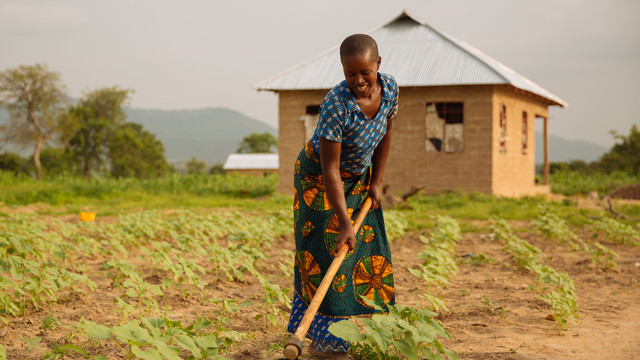Using online technology to empower communities facing land deals
Online databases are proving a useful tool for communities facing large-scale agricultural investments and associated conflicts, as a recent IIED webinar discovered.


Coming in for lunch in the rice fields near Inle Lake, Myanmar. Online databases can provide verified data on land conflicts and help resolve disputes and improve governance (Eric Brochu, CC BY-NC 2.0)
Large scale agricultural investments can compromise the land rights of communities and threaten livelihoods, but often it is difficult for the communities involved to access information about the nature of the deals and land conflicts.
A recent IIED webinar heard how online technology can be used alongside other forms of legal empowerment to promote transparency and accountability, and help resolve associated land conflicts.
Sky not falling…
If communities are to be consulted in relation to investment decisions that affect them, they need to know about the deals that are being made. This means deals need to be made transparently. While some progress has been made in the extractive industries, far too few land contracts are available to the public.
A new tool, highlighted by Sam Szoke-Burke from the Columbia Center on Sustainable Investment (CCSI), is OpenLandContracts.org (OLC). This online database provides free access to publicly available large-scale land, agriculture and forestry contracts.
The team behind OLC is highlighting to governments and investors who might be reluctant to improve transparency that publishing contracts in the extractive industries has not caused the sky to fall. One of the initiative's objectives is to demonstrate that disclosing land contracts is not only possible but also in their interests.
The team also works with civil society organisations (CSOs) to promote greater transparency around land contracts, including highlighting links to other global databases such as Land Matrix or Open Corporates.
Open Data Myanmar (ODM) is another new platform, presented at the webinar by Wai Wai Lwin, which uses web technology to share unbiased and verified data on land conflicts in Myanmar associated with investment projects. ODM aims to shine a light on the details and scale of conflicts, to resolve disputes and improve land governance.
Online technology's contribution to legal empowerment
The OLC database helps local communities, their advisers and CSOs understand the meaning of the contracts by providing plain language summaries ('annotations') designed for those with no legal training.
It also allows them to carry out monitoring campaigns so that they can hold parties to the contracts (typically investors and governments) to account, especially when promises in contracts have not been kept.
CCSI has awarded mini grants to support groups to test whether contracts can be easily understood and to monitor various projects featured on the site. There is also a resources section for capacity building and training materials.
Similarly, ODM provides legal literacy training for affected communities in Myanmar to raise their awareness and give them basic knowledge of the relevant laws, and offers free legal services such as writing complaints on behalf of communities and representing them in mediation and court cases. This has occasionally led to out of court conflict resolution, including land being returned to the original local landholders.
ODM encourages practical use of the data by reaching out to key government and activist stakeholders. With carefully packaged and visually engaging online and offline information ODM hopes to incite and influence reforms in land governance in Myanmar.
Scaling up and challenges
So far, the team behind ODM has gathered data relating to some 800 cases across two regions. Information is currently in Burmese but to make the site more accessible ODM intends to increase the amount of English language content.
It also seeks to scale up coverage for the whole country by using mobile applications, working with advocates, and linking up the data to other sources of information and campaigns. The team plans to step up its outreach work and in particular, share the data with the new government.
The recent political situation in Myanmar and the reluctance of local authorities to share information creates particular challenges for ODM. One solution is meeting those authorities with a lawyer to try to convince them to share the data and up-to-date land maps.
OLC currently has contracts from 13 countries and is also working with a number of governments to set up country-specific sites that the governments can use to satisfy their own transparency commitments.
Convincing more governments to disclose land contracts is one challenge, but ensuring the credibility and comprehensiveness of the information can also be a struggle. OLC cannot guarantee that the contracts are up-to-date or that they are the only relevant documents.
Sharing the information with communities with no web access can also be a problem, but paralegals working with communities can download and print out annotated contracts so they can be shared 'offline'.
While it is too soon to assess their full impact, these initiatives provide resources, evidence and opportunities for improving land governance. Despite the inevitable limitations of online technology, access to these databases, alongside creative outreach initiatives and advisory services, can constitute an important tool for legal empowerment.
Thierry Berger (thierryberger14@gmail.com) is a qualified solicitor and legal tools consultant at IIED focusing on law and sustainable development.
Further resource:
Slides from the webinar, including a presentation by Emily Polack, a senior researcher in IIED Legal Tools team, are available from IIED's Slideshare site.



